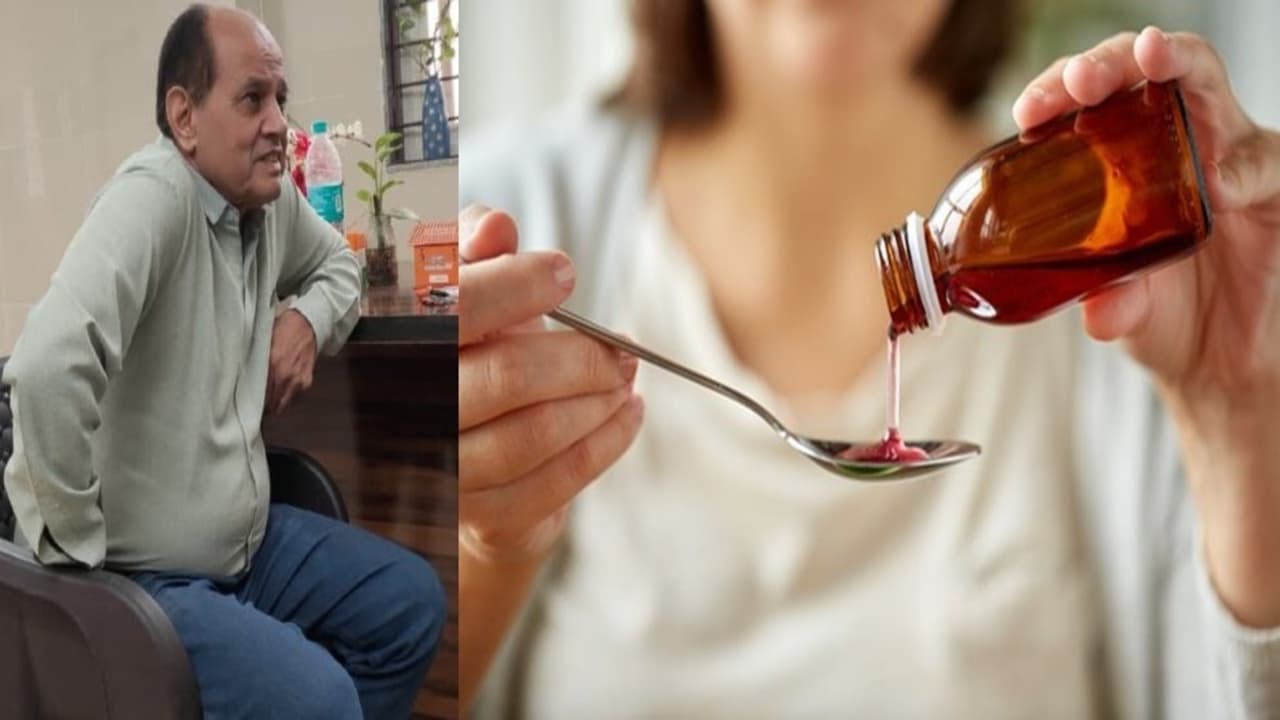At least 14 children in Madhya Pradesh’s Chhindwara have died after consuming Coldrif cough syrup, later found contaminated with toxic diethylene glycol (DEG). Police have booked the prescribing doctor and the Tamil Nadu-based manufacturer.
At least 14 children have died in Madhya Pradesh’s Chhindwara district. Most of them had consumed a cough syrup named Coldrif, after which they developed severe kidney complications. The children complained of fever and later could not pass urine for over 24 hours. Medical tests revealed swelling in the kidneys and extremely high creatinine levels.
Several children were admitted to hospitals in Chhindwara and later referred to Nagpur, Maharashtra, for advanced treatment. Many required dialysis. Doctors reported that some of the children arrived in critical condition with irreversible kidney damage.
Doctor and manufacturer booked
The police have filed a case against Dr. Praveen Soni, a paediatrician from Chhindwara who treated many of the affected children and prescribed the cough syrup. He has been arrested and is currently in custody. The drug manufacturer, Sresan Pharmaceuticals of Kancheepuram, Tamil Nadu, has also been named as a prime accused. The Madhya Pradesh government has banned the sale of all Coldrif syrup products across the state and blacklisted the company.
Toxic chemical detected
Laboratory tests revealed that Coldrif cough syrup contained 48.6% diethylene glycol (DEG), a highly toxic chemical commonly used in antifreeze and brake fluids. DEG is not meant for human consumption and can cause acute kidney failure, neurological damage, and death, especially in children.
The Central Drugs Standard Control Organisation (CDSCO) confirmed that six other medicines consumed by the children, including antibiotics and fever reducers, showed no contamination. This put Coldrif squarely at the centre of the tragedy.
Central government response
The Union Health Ministry has called an emergency meeting with Health Secretaries, Drug Controllers, and senior officials from all States and Union Territories. The meeting, chaired by the Health Secretary, will focus on:
- Rational use of cough syrups in children
- Strengthening quality checks on pharmaceutical products
The CDSCO has also launched risk-based inspections of drug manufacturing units across the country to identify unsafe practices and prevent such tragedies in the future.
Action in Madhya Pradesh
The Madhya Pradesh government has banned the sale of Coldrif syrup statewide. It also ordered district authorities to conduct raids on pharmacies and seize all stocks of the product. The state’s Drug Regulatory Authority is carrying out more tests, with final reports awaited.
Superintendent of Police Ajay Pandey confirmed that Dr. Soni and Sresan Pharmaceuticals are facing charges under relevant sections of the Bharatiya Nyaya Sanhita (BNS) and the Drugs and Cosmetics Act.
Rajasthan suspends 19 medicines
The Coldrif crisis has sparked wider concerns about cough syrups in India. In Rajasthan, Health Minister Gajendra Singh Khinvsar announced the suspension of 19 medicines from Kaysan Pharma, Jaipur.
This came after children in Bharatpur and Sikar districts reported vomiting, dizziness, fainting, and drowsiness after taking Dextromethorphan HBr syrup. Two health officials and the State Drug Controller were suspended for negligence. Lab testing of the medicines is ongoing, and a state-wide alert has been issued.
Tamil Nadu and Kerala ban Coldrif
Tamil Nadu, the home state of Sresan Pharmaceuticals, has banned Coldrif syrup from October 1. Officials inspected the manufacturing facility in Sunguvarchathram, Kancheepuram, and seized samples for testing. The company is a supplier to Madhya Pradesh, Rajasthan, and Puducherry.
Kerala has also suspended sales of Coldrif syrup, even though the contaminated batch was not sold in the state. The Drugs Controller has directed all pharmacies to stop stocking it as a precautionary measure.
Uttarakhand steps up surveillance
Authorities in Uttarakhand have launched surprise inspections at hospitals, medical shops, and wholesale drug dealers. Samples of cough syrups are being collected for laboratory testing.
State Health Secretary and FDA Commissioner Dr. R. Rajesh Kumar said the aim is to quickly identify and remove any unsafe drugs from the market to prevent a repeat of the Chhindwara tragedy.
Past concerns over toxic syrups
This is not the first time India has faced a crisis linked to contaminated cough syrups. In recent years, Indian-manufactured syrups containing diethylene glycol were linked to child deaths in The Gambia and Uzbekistan, prompting global criticism and stricter monitoring calls from the World Health Organization (WHO).
The current tragedy in Madhya Pradesh has reignited debates on drug quality, regulatory lapses, and the need for stricter enforcement of safety standards in the pharmaceutical industry.
(With ANI inputs)
